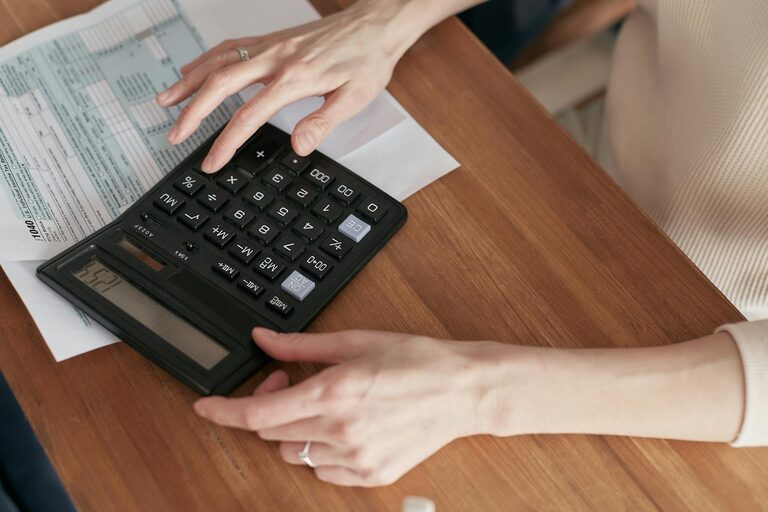Managing your finances doesn’t have to be complicated. Building simple budget habits into your everyday life can make a big difference in how you save, spend, and feel about money. Whether you’re new to budgeting or looking to improve your current routine, establishing clear, manageable practices helps create financial stability and peace of mind.
In this post, we’ll explore straightforward habits you can adopt to better manage your money every day without feeling overwhelmed.
Why Simple Budget Habits Matter
Budgeting can sometimes feel like a daunting or restrictive task. However, forming simple and consistent money habits helps you:
– Track your spending more effectively
– Avoid unnecessary debt
– Build better savings
– Reduce financial stress
– Achieve your short- and long-term goals
Small, everyday changes can add up to big improvements over time. The key is to keep your budget habits practical and sustainable.
Easy Budget Habits to Start Today
1. Track Your Expenses Daily
Keeping an eye on where your money goes is the foundation of budgeting. You don’t need complex spreadsheets or fancy apps right away—start by jotting down daily expenses, including coffee, groceries, and transport.
Tips to get started:
– Use a notebook or a simple notes app
– Record amounts and categories (food, transportation, entertainment)
– Review your list weekly to spot spending patterns
This habit makes you more aware of impulse purchases and helps identify areas where you can cut back.
2. Set Realistic Spending Limits
Once you understand your expenses, set practical limits for different categories. For example, decide on a weekly grocery budget or a monthly entertainment allowance.
How to create limits:
– Review past spending to find averages
– Set goals that align with your income and savings plans
– Adjust limits as needed rather than forcing unrealistic goals
Having spending boundaries keeps your finances on track without feeling deprived.
3. Pay Yourself First
Make saving a priority by treating it like a regular bill. Set up automatic transfers to your savings account just after payday. This “pay yourself first” habit helps build an emergency fund or save for special goals effortlessly.
Benefits of paying yourself first:
– Encourages consistent savings
– Reduces temptation to spend what you’ve planned to save
– Builds financial security over time
Even starting with a small amount can create powerful momentum.
4. Plan Meals and Shop Smart
Food spending is a significant part of many budgets. Planning meals ahead can reduce waste, help avoid last-minute takeout, and make grocery shopping more efficient.
Meal planning tips:
– Create weekly meal ideas before shopping
– Make a precise grocery list and stick to it
– Look for sales and use coupons when possible
This habit not only saves money but also promotes healthier eating.
5. Review and Adjust Your Budget Regularly
Budgets aren’t set in stone; they should evolve as your life changes. Take time each month to review your spending, savings progress, and financial goals.
What to look for:
– Categories where you overspent or underspent
– Opportunities to save more or reallocate funds
– Adjustments for upcoming expenses or changes in income
Consistent reviews help keep your budget realistic and effective.
Helpful Tools to Support Your Budget Habits
While simple methods work well, technology can make budgeting easier:
– Budgeting apps: Many free options help track expenses and create budgets (e.g., Mint, YNAB).
– Digital calendars: Set reminders for bill payments and savings transfers.
– Spreadsheets: Customize your tracking if you prefer manual recording.
Choose tools that feel comfortable and match your needs; the goal is to simplify, not complicate.
Tips for Maintaining Your Budget Habits
Sticking to a budget habit can be challenging. Here are a few ideas to help you stay on track:
– Start small: Don’t overhaul your entire financial routine overnight. Gradually introduce new habits.
– Celebrate progress: Reward yourself for milestones like saving a certain amount or staying within your limits.
– Stay flexible: Life happens, so it’s okay to adjust when necessary without guilt.
– Get support: Talk about your financial goals with a friend or join budgeting communities online for encouragement.
The more enjoyable and realistic your budget routine is, the more likely it will last.
Final Thoughts
Simple budget habits are powerful tools to manage your money effectively without stress. By tracking expenses daily, setting spending limits, paying yourself first, planning meals, and reviewing your progress regularly, you’ll build a stronger financial foundation. Remember, the goal is steady improvement and lasting habits that fit your lifestyle.
Start with one or two habits today, and watch how small changes can lead to greater financial confidence and control in everyday life. Your future self will thank you!



